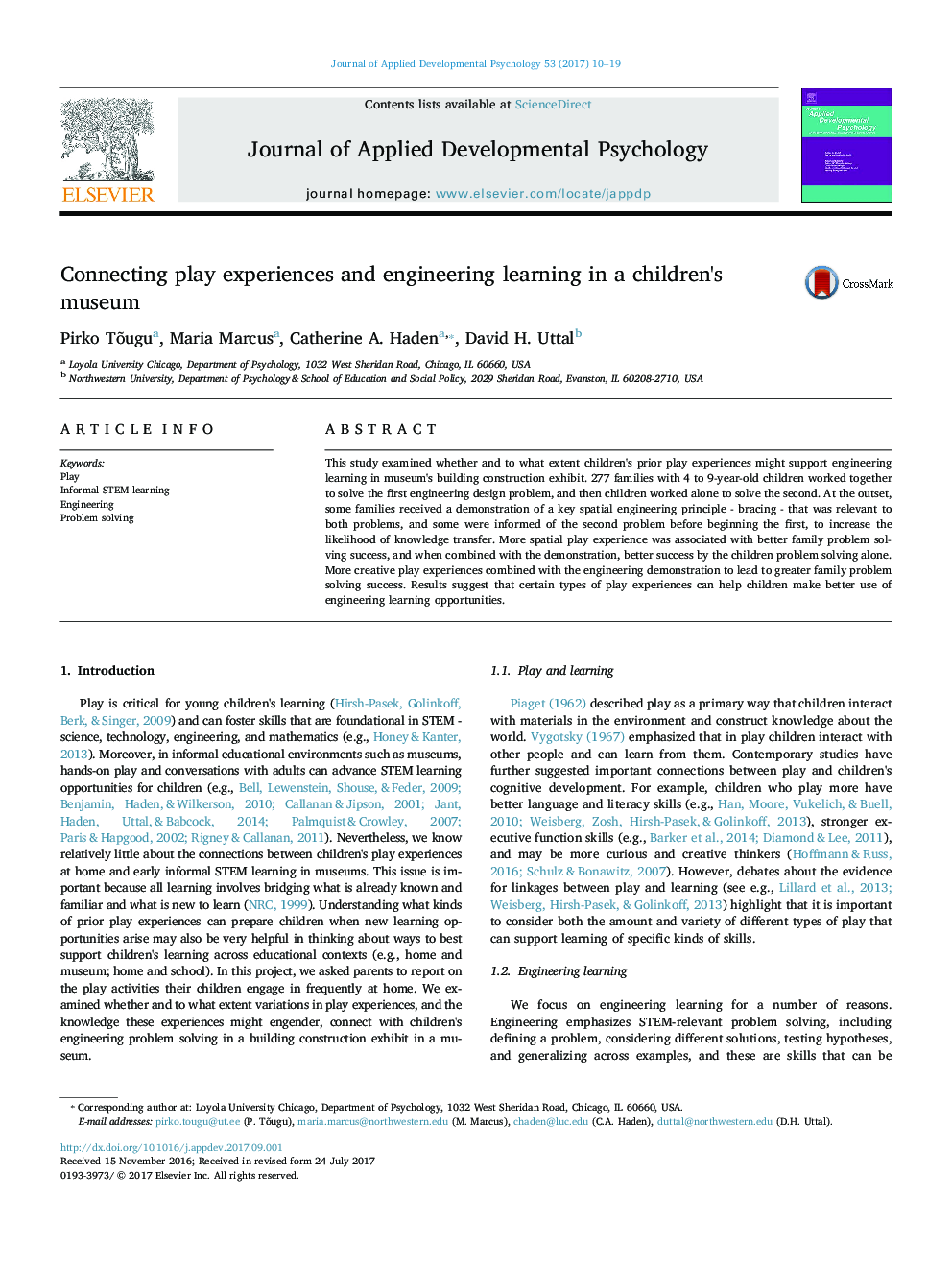| Article ID | Journal | Published Year | Pages | File Type |
|---|---|---|---|---|
| 4939094 | Journal of Applied Developmental Psychology | 2017 | 10 Pages |
Abstract
This study examined whether and to what extent children's prior play experiences might support engineering learning in museum's building construction exhibit. 277 families with 4 to 9-year-old children worked together to solve the first engineering design problem, and then children worked alone to solve the second. At the outset, some families received a demonstration of a key spatial engineering principle - bracing - that was relevant to both problems, and some were informed of the second problem before beginning the first, to increase the likelihood of knowledge transfer. More spatial play experience was associated with better family problem solving success, and when combined with the demonstration, better success by the children problem solving alone. More creative play experiences combined with the engineering demonstration to lead to greater family problem solving success. Results suggest that certain types of play experiences can help children make better use of engineering learning opportunities.
Keywords
Related Topics
Social Sciences and Humanities
Psychology
Applied Psychology
Authors
Pirko Tõugu, Maria Marcus, Catherine A. Haden, David H. Uttal,
